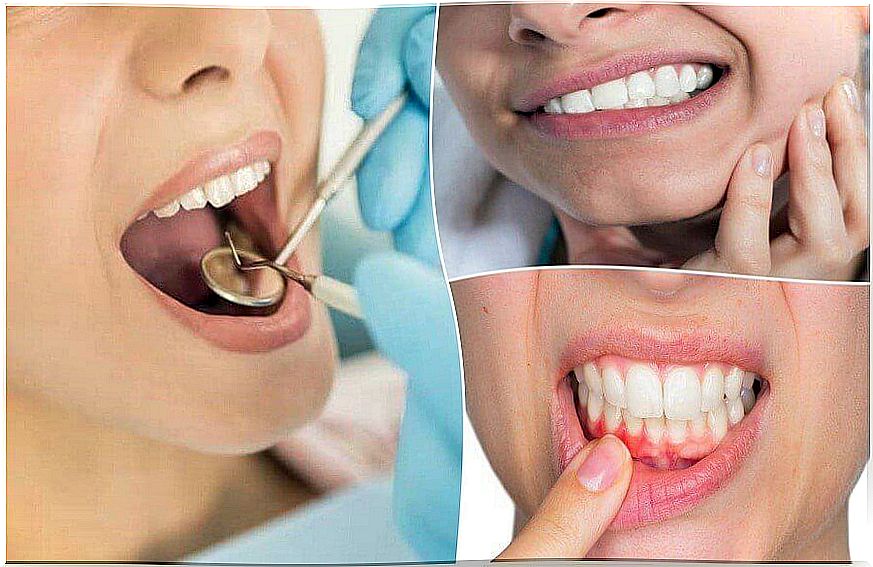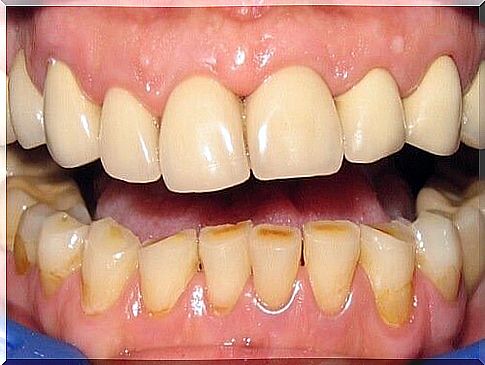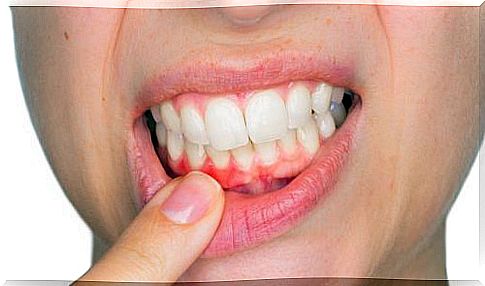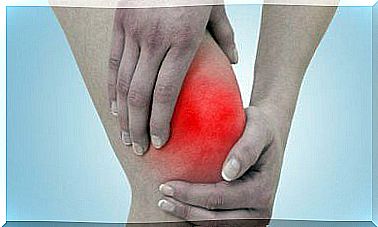7 Symptoms Suggestive Of Dental Inflammation

Your teeth are constantly in contact with food debris, bacteria, saliva and other components. They can affect your health or cause dental inflammation at any time.
Your diet and hygiene will help you keep your mouth clean and healthy. Sometimes, however, the environment in your mouth changes. It causes inflammation, which you should be careful about.
They can be mild or severe. In fact, in some cases, they endanger the health of your entire body.
The most worrying thing is that if you don’t take care of them on time, they can cause severe pain and even loss of your teeth.
Because of this, it is important to know the symptoms of inflammation. Above all, seek professional help when trying to identify a problem.
Symptoms of dental inflammation
1. Bad breath

Halitosis is one of the most obvious symptoms of dental inflammation.
It is caused by too many bacteria, especially in areas where the toothbrush does not hold up and where food residues remain.
This can usually be controlled with oral hygiene products. However, it reappears again and again until you get rid of the inflammation.
Its appearance may mean:
- Gingivitis
- Perforation
- Tooth decay
- Bacterial tartar
- Saliva change
2. Tooth enamel wear
When you suffer from dental inflammation, the bacteria in your mouth produce acid. This acid consumes tooth enamel that protects your teeth.
- These substances accumulate in the form of hard plaque. It causes yellow spots from some food residues.
- Uncontrolled inflammation can cause severe tooth decay. It can cause it to lose its density and disintegrate.
3. Jaw and tooth pain

Feeling of pain in the jaw and teeth, either permanently or temporarily, can also be a sign of inflammation. It can be a symptom of periodontal disease or dental inflammation.
- In general, this is about plaque buildup.
- There may also be food residues that make the growth of this bacterium easier.
Such cases should be investigated by a dentist. It can be caused by several oral diseases or injuries.
4. Bleeding gums
Gums bleed when they have experienced some form of damage or inflammation.
- It is normal to notice it every now and then when brushing your teeth or using dental floss. You may even notice it when eating certain foods. However, if you notice it often, you should check it out.
- Its main cause is toxins that cause plaque in your teeth.
5. Inflammation and redness

Periodontal inflammation, which also includes perforation, causes inflammation and redness of the gums. It is almost always accompanied by pain.
- It is important to take care of it quickly to prevent complications. This is because the swelling can spread to your jaws.
6. Loose teeth
Feeling loose teeth is reason enough to go to the dentist.
- This marks the progress of dental inflammation. At the same time, it tells you that the skeletal structure that supports your teeth is deteriorating.
- This can happen when you don’t take care of gingivitis in time. It can then become periodontal.
- This disease can cause the teeth in that area to move. In severe cases, it can cause bone loss.
7. Tooth decay

The appearance of tooth decay in your gums is a sign that warns you of possible periodontal disease.
It is the immune system’s response to an attack by pathogenic bacteria that cause inflammation.
- They can initially cause “bags”. These bags are called abscesses and consist of blood and tooth decay.
- It is a complex disease and should be treated by a professional. If not treated in time, it can cause irreversible damage.
- The infection can begin to destroy the bone that supports your teeth.
Important!
Any doubts about the condition of your teeth or gums should be checked by a professional. These problems can get worse quickly.
Inflammation in your mouth can begin to affect other important organs through your bloodstream. That is why it is important to treat them properly.
To reduce the risk of stomatitis, it is important to ensure good oral hygiene. You should see your dentist at regular intervals.









